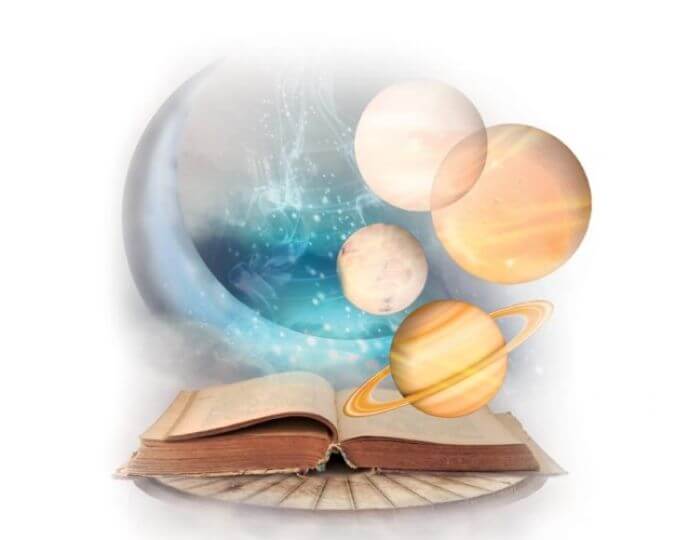
How do astrologers know this?
Where do astrologers get their knowledge from? What, for example, Jupiter brings wealth, Uranus excites, and Venus favors love and money?
Mostly from books. Today there are many books on astrology and about astrology, but in the old days it was different. Books were also difficult to find in obscure languages such as Greek or Arabic, because the Arabs translated the books of ancient authors into their own language, and the originals were subsequently lost.
The names of the stars come from the times when the Arabs set the tone in astrology and astronomy, for example Aldebaran (“following the Pleiades”), Algol (“devil”), Sheat (“upper arm”), Zawidzhava (“barking corner”) . It happened that readers of old books in difficult languages made mistakes, misunderstood sentences or missed some questions.
For example, the Hindus lost sight of the fact that the beginnings of signs as a result of precession slowly shifted against the background of the stars - and rigidly tied their zodiac to them. Until now, they use the stellar zodiac, which differs from ours in almost every sign: European Aries - Indian Pisces.
By reading books, astrologers improved their knowledge. They clarified the concepts. For example, in the beginning, when the system of houses was introduced in Ancient Greece, the whole sign was the house. House One was the rising sign, House Two was the next, and so on. Only later, in the late Roman Empire, the horoscope began to be divided into houses, regardless of the signs.
The real race started with the renaissance, which also led to the revival of astrology.to come up with a better house system. To date, several hundred such systems have been invented. Let me add that astrology has not survived its modern revolution like physics, chemistry or biology. The modern physicist does not need to learn the physics of Aristotle, because he does not need it - it has nothing to do with today's knowledge. Note that in mathematics everything is different, without violating its continuity, so that the "archaic" theorems of Pythagoras or Thales or Archimedes' recipe for calculating prime numbers remain valid.
Astrology is similar to mathematics - it has preserved the continuity of development. But although it was continuous and adhered to tradition, it had to take into account the discoveries of other sciences about man and his world.
As psychology developed, astrologers noticed that the psychological division of characters into extroverts and introverts agrees very well with the division into Jupiterian (extroverted) and Saturnian (introverted) types. Or that the odd signs of the zodiac are extroverted - Aries, Gemini, Leo ... and the even ones are rather introverts: Taurus, Cancer, Virgo ... So another source of astronomy is creative borrowing from "brotherly" teachings.
Such an important "brotherly source" was the discovery of new planets, unknown to the ancients. Astrologers then faced the task of knowing the nature of these planets - Uranus, Neptune and Pluto - and determining their influence. This work continues to this day and is largely based on experience, that is, on the study of the horoscopes of people and events in which these planets play an outstanding role.
Subsequent events constantly confirm these conclusions, for example, the accident at the Chernobyl nuclear power plant occurred when Pluto, in opposition to the Sun, passed through the medium of celestial bodies. It is difficult to find a more unequivocal confirmation of the destructive role of this planet. Destructive, but also cleansing: because Chernobyl started the collapse of the Soviet Union.
This is how we approached the most important source of knowledge of astrologers: it is the experience and observation of the world and people with a horoscope in their hands.
Mysticism also has its share. Patrice Guinard, a French reformer of astrology, revealed that he invented his system of eight houses (not twelve, as the tradition says) - he saw in a vision. It was only with this vision that he began to re-examine the horoscopes of the people who confirmed his vision.
Please note that even high-tech scientists sometimes have dreams and visions in which their inventions come to them. The German chemist August Kekule discovered in a dream how the benzene molecule works. The difference is that astrologers are willing to brag about their visions, while the "strict" is disapproved of.

Leave a Reply